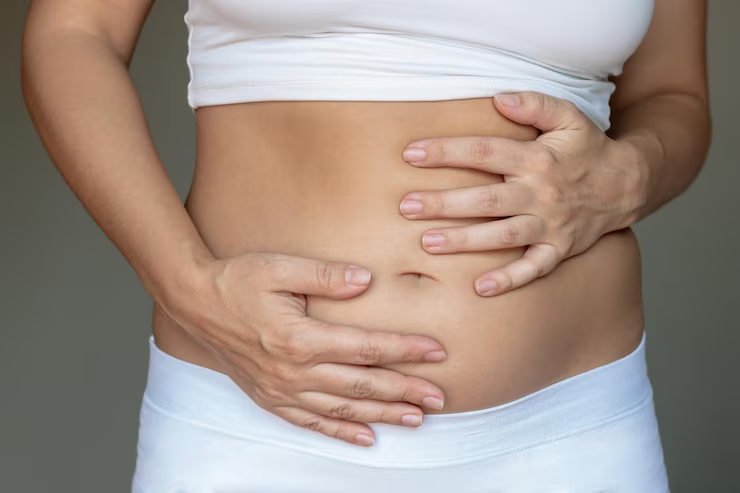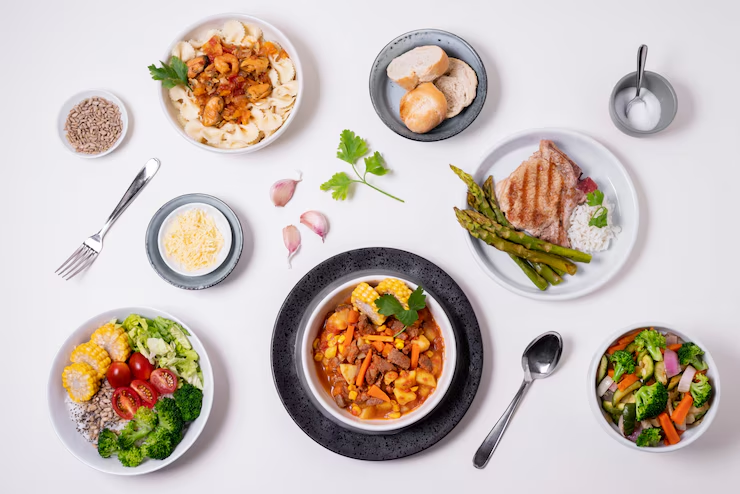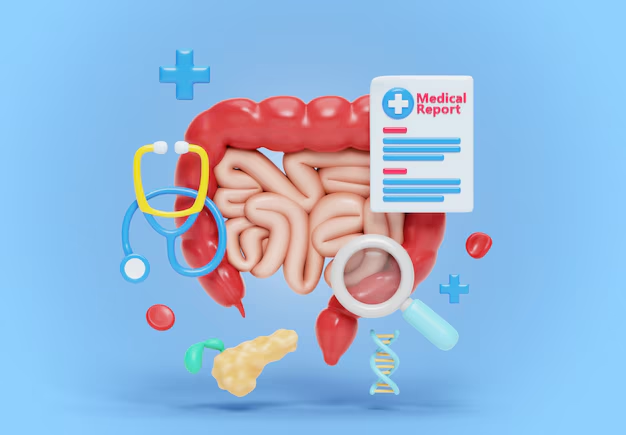Bloating is a common digestive issue that many people experience worldwide. It often feels like tightness, fullness, or swelling in the stomach. This discomfort may be accompanied by gas, burping, or changes in bowel movements, making daily activities harder to manage.
Although bloating is usually not dangerous, it can be frustrating and uncomfortable. For some people, it happens occasionally, while others may face it more often. When bloating becomes chronic or severe, it can affect focus, self-esteem, and overall quality of life.
Bloating can be caused by many factors such as diet, lifestyle habits, stress, or certain health conditions. Knowing what triggers bloating is important for finding the right solutions. By identifying and addressing these causes, individuals can take steps to prevent bloating and improve their digestion and comfort over time.
In this comprehensive article, we’ll dive deep into what bloating really is, what causes it, and introduce the top 8 anti-bloating strategies that can help you regain comfort and digestive harmony.
What Is Bloating ?
Bloating is the feeling of pressure or fullness in the abdomen, often making the stomach look swollen or larger than usual. It is a common problem that many people experience from time to time.
This sensation of bloating can make your stomach feel tight, heavy, or uncomfortable. In some cases, it may even cause mild to sharp pain in the belly area, especially after eating.
Bloating can happen for many reasons, including gas buildup, overeating, or digestive issues. It is not always serious but can still affect how you feel throughout the day. Understanding what triggers bloating is the first step toward finding relief and feeling more comfortable in your body.

Common Symptoms of Bloating:
Swelling or distension of the abdomen
Excessive gas or flatulence
Belching or burping
Abdominal discomfort or cramps
Feeling full quickly while eating
A “heavy” or “tight” sensation in the gut
Bloating can be acute (short-term) or chronic (long-term). While short-term bloating is usually due to dietary causes like overeating or gas-producing foods, persistent bloating may indicate a deeper issue.
What Causes Bloating ?
Overeating: Consuming large quantities of food in a short period can stretch the stomach beyond its normal capacity. This sudden overload challenges the digestive system, often resulting in bloating due to the buildup of gas and slow digestion.
Swallowing Excess Air: Rapid eating, frequent gum chewing, talking while eating, or drinking carbonated beverages can cause air to be swallowed unconsciously. This trapped air in the digestive tract contributes significantly to bloating and abdominal pressure.
Food: Intolerancesin individuals are sensitive to specific foods like lactose, gluten, or fructose. These substances are poorly absorbed and tend to ferment in the intestines, leading to gas production and persistent bloating.
Constipation: When bowel movements are infrequent or difficult, waste and gas accumulate in the intestines. This buildup often results in a distended abdomen and a lingering sensation of bloating.
Hormonal Fluctuations: Hormonal changes, particularly in women during menstruation, pregnancy, or menopause, can lead to water retention and digestive slowdowns. These shifts frequently contribute to noticeable bloating and discomfort.
Gut Dysbiosis: An imbalance in the gut microbiota can hinder digestion and promote fermentation of undigested food. This microbial disturbance often leads to excessive gas and a bloated feeling in the stomach.
Stress and Anxiety: Emotional stress has a direct effect on the gut through the brain-gut axis. Heightened stress can disrupt normal digestive function, slow intestinal movements, or increase gut sensitivity, all of which can worsen bloating.
Underlying Medical Conditions: Digestive disorders such as irritable bowel syndrome (IBS), small intestinal bacterial overgrowth (SIBO), celiac disease, and delayed stomach emptying (gastroparesis) are frequently linked with chronic bloating and gastrointestinal distress.
Top Anti-Bloating Strategies
Now that we’ve covered the causes, let’s explore the most effective ways to reduce and prevent bloating. These strategies combine dietary changes, lifestyle adjustments, and holistic approaches.
Eat Smaller, More Frequent Meals

Eating large meals can overwhelm the digestive system, making it harder for the body to process food efficiently. When too much food enters the stomach at once, it stretches the stomach walls and puts extra pressure on the digestive organs.
This slowed digestion often leads to the production of excess gas, which gets trapped in the digestive tract. As a result, you may feel uncomfortable, heavy, or experience noticeable bloating. The feeling of fullness and pressure in the stomach can last for hours after the meal.
To avoid bloating, it’s helpful to eat smaller, more frequent meals. Smaller portions are easier for your body to break down and absorb, reducing the risk of gas buildup and stomach distension. This simple habit can make digestion smoother and help you feel more comfortable throughout the day.
How to Apply:
Split your daily food intake into 4–6 smaller meals or snacks.
Eat slowly, chew thoroughly, and stop eating when you’re 80% full.
Avoid eating late at night when your metabolism slows.
Pro Tip: Use smaller plates to help manage portion sizes visually.
Identify and Eliminate Trigger Foods
Certain foods are more likely to cause bloating, especially those rich in fermentable carbohydrates. These are commonly referred to as FODMAPs, which stands for Fermentable Oligosaccharides, Disaccharides, Monosaccharides, and Polyols.
FODMAPs are poorly absorbed in the small intestine and tend to ferment in the colon. This fermentation process produces gas, which can lead to bloating, discomfort, and a feeling of fullness. Some common FODMAP-rich foods include beans, onions, garlic, apples, and dairy products.
For people who experience frequent bloating, limiting or avoiding high-FODMAP foods may provide relief. Identifying which foods trigger your bloating can help you manage your symptoms more effectively. Following a low-FODMAP eating plan under the guidance of a healthcare professional may also support better digestive comfort and reduce bloating over time.
Common Bloating Triggers:
Beans and lentils
Onions and garlic
Broccoli, cauliflower, and cabbage
Apples, pears, and cherries
Dairy (lactose)
Artificial sweeteners (sorbitol, xylitol)
How to Apply:
Keep a food diary to track what you eat and how you feel after meals.
Try an elimination diet or low-FODMAP diet under the guidance of a dietitian.
Reintroduce foods gradually to identify personal triggers.
Note: Avoiding too many foods long-term can lead to nutritional deficiencies, so seek professional guidance.
Improve Gut Health with Probiotics and Prebiotics

Probiotics are live, helpful bacteria that support a healthy gut by keeping harmful microbes in check. They play a key role in digestion and can improve overall gut function, which may help reduce bloating and other digestive issues.
Prebiotics, on the other hand, are types of fiber that feed these beneficial bacteria. By nourishing the good bacteria, prebiotics help them grow and thrive, further supporting a balanced digestive system and lowering the chances of bloating.
Together, probiotics and prebiotics work to maintain gut health. When your digestive system is in balance, food is broken down more efficiently, gas is reduced, and bloating becomes less frequent. Adding both probiotics and prebiotics to your daily diet can support smoother digestion and promote relief from bloating over time.
How to Apply:
Add probiotic-rich foods: yogurt, kefir, sauerkraut, kimchi, miso, tempeh.
Include prebiotic foods: bananas, garlic, onions, leeks, asparagus, oats.
Consider a high-quality probiotic supplement with strains like Lactobacillus and Bifidobacterium.
Caution: Some people may feel more bloated when first starting probiotics. Introduce them gradually.
Stay Hydrated and Limit Salt Intake
Drinking enough water is important for healthy digestion. Water helps break down food and keeps everything moving smoothly through the digestive system. Staying well-hydrated can reduce the risk of constipation, which is a common cause of bloating.
When the body doesn’t get enough water, digestion slows down, and waste can build up in the intestines. This often leads to gas, discomfort, and bloating. Regular water intake helps flush out waste and supports a healthier digestive process.
On the other hand, consuming too much sodium can cause the body to retain water. This water retention leads to puffiness and can make bloating feel worse. Limiting salty foods and drinking enough water each day can help maintain fluid balance in the body and reduce bloating. Small changes in daily habits can make a big difference in how your stomach feels.
How to Apply:
Drink 8–10 glasses of water per day.
Avoid sugary or carbonated drinks.
Limit processed and salty foods.
Infuse water with lemon, mint, or cucumber for extra detox benefits.
Bonus: Herbal teas like peppermint, ginger, fennel, and chamomile are excellent for relieving bloating.

Move Your Body Every Day
Regular exercise is a simple yet effective way to support digestion. Physical activity helps food move through the digestive tract more quickly, which can prevent blockages and discomfort. This faster movement reduces the chances of constipation, a common cause of bloating.
When digestion slows down, gas and waste can build up in the intestines, leading to pressure and bloating. Exercise, especially walking or light movement after meals, helps ease this buildup by stimulating the natural movement of the gut.
Adding daily physical activity to your routine not only improves overall health but also helps reduce bloating. Whether it’s a brisk walk, gentle yoga, or a short bike ride, moving your body supports regular bowel movements and keeps your stomach feeling lighter and more comfortable. Staying active is a natural and effective way to manage bloating and improve digestive well-being.
How to Apply:
Aim for 30 minutes of movement daily: brisk walking, yoga, swimming, or biking.
After meals, go for a gentle walk instead of lying down.
Try yoga poses like “Wind-Relieving Pose,” “Cat-Cow,” or “Child’s Pose” to massage the intestines.
Consistency is key. Even short walks can make a big difference.
Manage Stress Through Mind-Gut Practices
Stress has a strong impact on the digestive system. It can change how the gut moves, either speeding it up or slowing it down. These changes often lead to symptoms like gas, cramps, and bloating, making the stomach feel uneasy and tight.
When stress levels are high, the body may also produce more inflammation, which can affect digestion. This inflammation can make the gut more reactive, increasing the likelihood of discomfort and bloating after meals.
In addition, stress can heighten the body’s awareness of gut sensations. This means even small amounts of gas or pressure may feel more intense. Managing stress through relaxation, deep breathing, or regular exercise can help reduce bloating and improve digestion. Keeping stress under control is an important part of maintaining gut health and feeling more comfortable daily.
How to Apply:
Practice deep breathing, meditation, or progressive muscle relaxation daily.
Try mindfulness-based stress reduction (MBSR).
Incorporate hobbies, time in nature, or journaling to unwind.
Consider cognitive behavioral therapy (CBT) if bloating is linked to anxiety or IBS.
Fun Fact: Just 10 minutes of mindful breathing can calm your gut.

Avoid Carbonated Drinks and Chewing Gum
Drinking carbonated beverages like soda introduces gas bubbles into the digestive system. These bubbles can build up in the stomach and intestines, leading to a feeling of pressure and fullness. This extra gas often results in discomfort and bloating shortly after consumption.
Similarly, chewing gum causes you to swallow air without realizing it. Each time you chew, you take in small amounts of air that travel to your stomach. Over time, this trapped air can lead to excess gas and bloating, especially if gum is chewed frequently throughout the day.
Both soda and gum may seem harmless, but they can significantly increase the amount of gas in your digestive tract. Reducing your intake of fizzy drinks and limiting gum chewing can help lower your risk of bloating and keep your stomach feeling more at ease throughout the day.
How to Apply:
Replace sodas with flat water, herbal teas, or infused waters.
Chew slowly and consciously without talking while eating.
Avoid sucking on hard candies, which also cause air swallowing.
Pro Tip: If you crave bubbles, try lightly sparkling water in moderation and monitor your body’s response.
Support Digestive Enzymes and Bile Production
Digestive enzymes play a key role in breaking down carbohydrates, fats, and proteins into smaller parts that the body can absorb. These enzymes are naturally produced in the digestive system and help food move smoothly through the gut.
When the body doesn’t produce enough digestive enzymes, food may not be fully broken down. This undigested food can begin to ferment in the intestines, creating gas as a byproduct. The buildup of gas often leads to discomfort and noticeable bloating.
A deficiency in digestive enzymes can make digestion slower and less effective. This may result in symptoms such as gas, cramps, and bloating after eating. Taking steps to support enzyme production or using enzyme supplements under guidance may help improve digestion and reduce bloating. Ensuring your digestive system has what it needs can make meals more comfortable and easier to process.
How to Apply:
Eat bitter greens (arugula, dandelion, endive) before meals to stimulate bile.
Add pineapple (bromelain) or papaya (papain) for natural enzymes.
Consider enzyme supplements, especially if you experience bloating after high-fat or high-protein meals.
Apple cider vinegar diluted in water before meals may support digestion (consult a healthcare provider first).
Note: Not everyone needs supplements—check with a nutritionist if unsure.

When to See a Doctor About Bloating
While bloating is usually benign, certain symptoms warrant medical attention:
Sudden or severe bloating
Bloating with weight loss or appetite changes
Blood in stool or chronic constipation/diarrhea
Fever, vomiting, or severe abdominal pain
Persistent bloating not relieved by dietary or lifestyle changes
These could indicate more serious conditions such as IBS, celiac disease, SIBO, or even ovarian cancer in rare cases.
Conclusion
In conclusion, bloating is a common yet frustrating condition that can be caused by various factors, including dietary choices, stress, and underlying health issues. However, with the right strategies, it is possible to reduce or even prevent bloating. Incorporating smaller, more frequent meals, identifying food triggers, staying hydrated, and managing stress can all help alleviate discomfort.
Additionally, focusing on gut health through probiotics, prebiotics, and exercise can support long-term digestive health. While occasional bloating is often harmless, persistent or severe bloating may require medical attention to rule out any serious conditions. By implementing these effective anti-bloating strategies, you can regain control over your digestive health and enjoy a more comfortable, symptom-free life. With patience and consistency, bloating doesn’t have to control your day-to-day well-being.

FAQs
Q.1 What are the common causes of bloating ?
Bloating can be caused by a variety of factors, including overeating, swallowing air, food intolerances (like lactose or gluten), constipation, hormonal changes, and an imbalance of gut bacteria. Stress and certain medical conditions, such as IBS or SIBO, can also contribute to bloating.
Q.2 How can I relieve bloating quickly ?
To relieve bloating quickly, try gentle movements like a short walk or specific yoga poses, which can help release trapped gas. Drinking herbal teas like peppermint, ginger, or chamomile can also soothe your digestive system. Staying hydrated and using over-the-counter anti-gas medications may offer temporary relief.
Q.3 Can stress cause bloating ?
Yes, stress can significantly impact digestion by slowing down gut motility, increasing sensitivity, or even leading to inflammation. This can exacerbate bloating and other digestive issues. Practicing relaxation techniques like deep breathing or meditation can help alleviate stress-induced bloating.
Q.4 Are there any foods that can help prevent bloating ?
Yes, certain foods like ginger, peppermint, and fennel are known for their anti-bloating properties. Additionally, consuming probiotics from foods like yogurt, kefir, and fermented vegetables can improve gut health and reduce bloating over time. Hydrating foods like cucumber and watermelon can also help prevent water retention.
Q.5 When should I see a doctor about bloating ?
If bloating becomes chronic or is accompanied by other symptoms like severe pain, unexplained weight loss, blood in stool, or persistent diarrhea or constipation, it’s important to seek medical advice. These could be signs of an underlying health condition such as IBS, celiac disease, or more serious gastrointestinal disorders.
